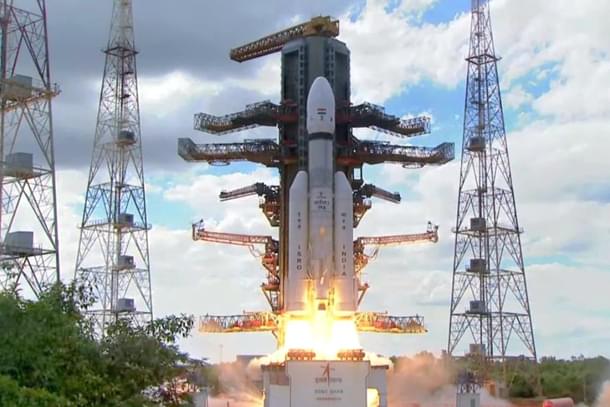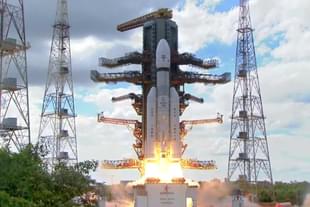News Brief
India To Develop Next-Gen Space Launch Vehicle With 30 Tonne Payload Capacity And Reusable Tech, Cabinet Approves Rs 8,240 Crore Funding
Kuldeep Negi
Sep 18, 2024, 04:16 PM | Updated 04:16 PM IST
Save & read from anywhere!
Bookmark stories for easy access on any device or the Swarajya app.


In a major development in India's space sector, the Union Cabinet, led by Prime Minister Narendra Modi, has approved the development of the Next Generation Launch Vehicle (NGLV).
The NGLV is set to play a crucial role in India's future space missions, including the establishment of the Indian space station 'Bharatiya Antariksh Station', and a planned crewed mission to the Moon by 2040.
The NGLV will significantly improve payload capacity, offering three times the payload capability of the current LVM3 vehicle, while keeping costs at 1.5 times the present level.
Additionally, the NGLV will feature reusable components and modular green propulsion systems to provide a low-cost, environmentally friendly option for space launches.
The NGLV will be developed to have a maximum payload capability of 30 tonnes to Low Earth Orbit (LEO), with a reusable first stage.
This is a step forward from India’s current capabilities, which include launching satellites of up to 10 tonnes to LEO and four tonnes to Geo-Synchronous Transfer Orbit (GTO) using vehicles like the PSLV, GSLV, LVM3, and SSLV.
The NGLV development project will be implemented with maximal participation from the Indian industry, who is also expected to invest in the manufacturing capacity at the outset itself, thereby allowing a seamless transition to the operational phase subsequent to the development.
NGLV will be demonstrated with three development flights (D1, D2 & D3) with a target of 96 months (8 years) for the completion of the development phase.
The NGLV development phase includes three demonstration flights over the next eight years, with a total project cost of Rs 8,240 crore. This funding will cover the development, testing flights, establishment of essential facilities, and launch campaign management.
Also Read: 'Bharatiya Antariksh Station': First Module Of India's Own Space Station To Be Launched In 2028
Kuldeep is Senior Editor (Newsroom) at Swarajya. He tweets at @kaydnegi.





